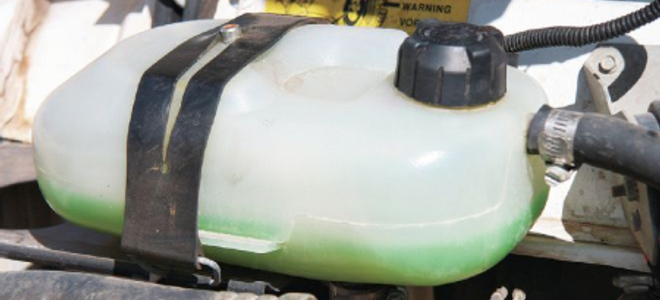How Do I Know If My Coolant Is Leaking – is the article you’re searching for. Hopefully, you can find information related to How Do I Know If My Coolant Is Leaking here, all of which we’ve summarized from various reliable sources.

Leaking Coolant: How to Detect and Resolve It
I remember the time my car decided to take a stand in the middle of a busy intersection, its engine steaming like a furious dragon. It turned out that I had a coolant leak, a problem that could have been easily avoided if I had been more vigilant. This incident kick-started my quest to attain a comprehensive understanding of coolant leaks, and today, I share my knowledge with you to prevent similar mishaps.
Coolant, the unsung hero of your vehicle’s engine, is a vital fluid that keeps your engine running smoothly by regulating its temperature. However, a leak in the coolant system can lead to overheating, engine damage, and even catastrophic failures. Hence, it is imperative to monitor your coolant levels regularly and recognize the telltale signs of a leak.
Symptoms of a Coolant Leak
Several symptoms can indicate a coolant leak. Here are a few to watch out for:
- Low coolant levels: Regularly check your coolant levels using the reservoir. If you notice a significant drop, it could be a sign of a leak.
- Leaking coolant: Look for puddles or drips underneath your car, especially after it has been parked for a while. The coolant can vary in color (green, orange, or red), depending on the type you use.
- Overheating engine: A loss of coolant can lead to insufficient cooling, resulting in an overheating engine. If your temperature gauge starts climbing, it’s time to investigate a potential coolant leak.
- Steam from the engine: If you see steam coming from under your hood, it could be a sign of coolant escaping and evaporating.
- Sweet smell: Coolant usually has a sweet odor. If you detect a sweet smell in your car, it may indicate a leak.
Causes of a Coolant Leak
Coolant leaks can originate from various sources within the cooling system. Here are some common causes:
- Damaged hoses: Coolant hoses can become brittle or cracked with age or wear and tear, leading to leaks.
- Faulty radiator: The radiator is responsible for dissipating heat from the engine. A damaged or leaking radiator can cause coolant to escape.
- Water pump failure: The water pump circulates coolant throughout the system. A malfunctioning or leaking water pump can cause coolant loss.
- Cracked engine block: In severe cases, a cracked engine block can allow coolant to leak into the engine.
- Loose or damaged clamps: Clamps secure hoses and other components in the cooling system. Loose or damaged clamps can cause leaks.
Tips and Expert Advice for Detecting and Fixing Coolant Leaks
If you suspect a coolant leak, here are some tips to help you locate and resolve the issue:
- Check for visible leaks: Park your car on a clean, dry surface and inspect the underside of your vehicle for leaks. Use a flashlight to help you see better in dimly lit areas.
- Pressure test: A pressure test can identify leaks in the cooling system. A mechanic connects a pressure tester to the system and pressurizes it. Leaks will be identified as air or coolant escapes.
- Use a dye: A special dye can be added to the coolant. If there is a leak, the dye will leak out and make it easier to spot.
- Tighten loose clamps: If you find loose clamps, tighten them securely using a wrench.
- Replace damaged hoses: If a hose is damaged, it should be replaced immediately.
FAQs on Coolant Leaks
- Q: Can I drive with a coolant leak?
A: No. Driving with a coolant leak can lead to engine damage. It is advisable to have the leak fixed as soon as possible.
- Q: How often should I check my coolant levels?
A: It is recommended to check coolant levels regularly, especially before long trips. Most manufacturers suggest checking the coolant level at least once a month.
- Q: What type of coolant should I use?
A: Always refer to your vehicle’s owner’s manual for the recommended type and color of coolant.
- Q: Can I fix a coolant leak myself?
A: Simple leaks, such as loose clamps or a leaking reservoir, can be fixed with basic tools. However, for more complex leaks, it is advisable to consult a mechanic.
- Q: What is the cost of fixing a coolant leak?
A: The cost of fixing a coolant leak varies depending on the severity of the leak and the parts that need to be replaced. However, it is generally a relatively affordable repair.
Conclusion
Monitoring coolant levels and being aware of the symptoms of a leak can help you prevent costly engine damage. Remember, a well-maintained cooling system is essential for the smooth operation of your vehicle. If you suspect a coolant leak, do not hesitate to have it checked by a qualified mechanic promptly.
Is there anything else you’d like to know about coolant leaks? Let me know in the comments below!

Image: www.doityourself.com
How Do I Know If My Coolant Is Leaking has been read by you on our site. Thank you for your visit, and we hope this article is beneficial.